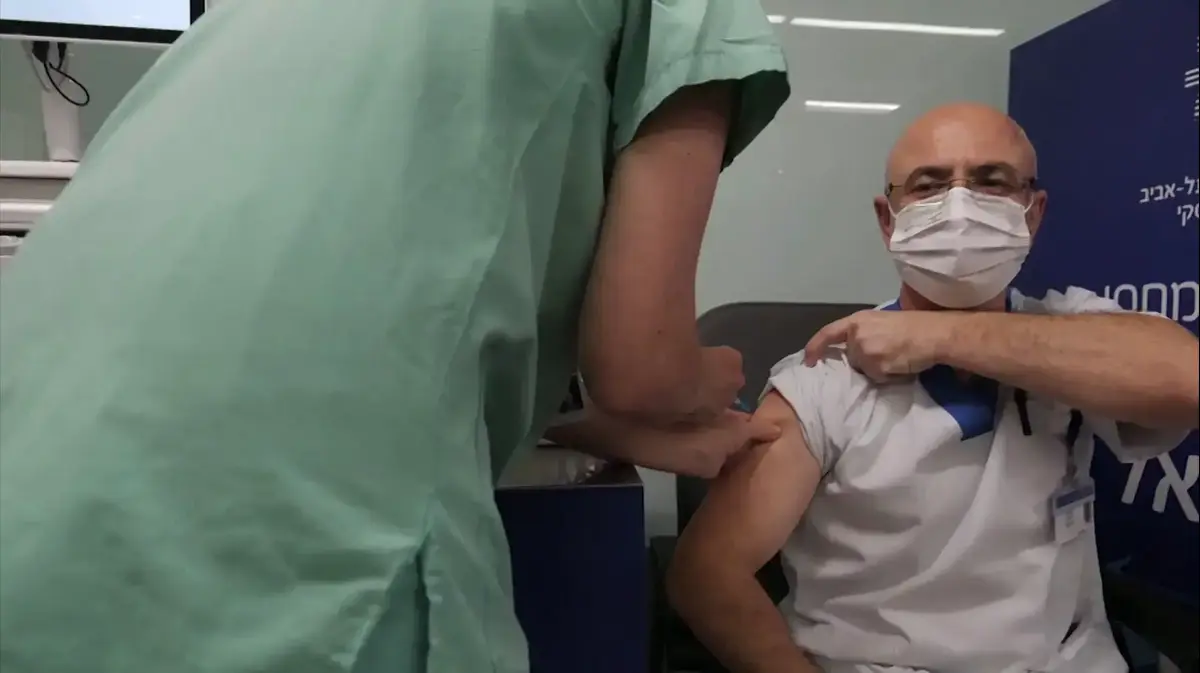Enlarge image
Karl Lauterbach
Photo: Kay Nietfeld / dpa
This article is continuously updated.
Don't miss a thing: subscribe to our coronavirus newsletter for the latest developments and the most important background information.
Intensive care physicians expect an increasing postponement of predictable operations
5.40 a.m.:
Due to the worsening corona situation, the intensive care doctor Christian Karagiannidis expects hospitals to increasingly restrict regular operations again. "We will hardly be able to avoid it," said the scientific director of the intensive care register of the German Interdisciplinary Association for Intensive and Emergency Medicine (DIVI) on Tuesday evening in the ARD "Tagesthemen". He referred this particularly to badly affected federal states such as Bavaria, Saxony and Thuringia.
Restricting regular operations means "that we really postpone operations that can be postponed because they are not life-threatening or because they are not tumors and redeploy the staff within the hospital," said Karagiannidis. The Berlin Charité-Universitätsmedizin has been canceling all plannable interventions since Tuesday in order to increasingly deploy employees in Covid-19 wards.
Karagiannidis explained that about ten percent of intensive care beds in Germany are currently still free. That is relatively little, because an intensive care unit consists of an average of twelve beds - and therefore usually only one bed is free "for all emergencies that are not just Covid." “And at the moment when we regionally drop below five percent free beds, we are in principle no longer able to act in the clinics. And that will overtake us relatively quickly in the next few weeks and, above all, months (...) at least in the hotspots that we have now - Bavaria, Saxony and Thuringia. "
In order to curb the current increase in the number of corona cases, Karagiannidis demanded "2G and also 3G in the workplace" - it was seen in the European surrounding area that this had an effect on the first vaccination rate.
He also spoke out in favor of booster vaccinations, initially for the elderly, but then also for the younger ones.
Rapid
tests must be independently verified from May onwards
5.30 a.m.:
Many rapid antigen tests are not reliable enough - they will have to be verified by independent bodies next year. So far, manufacturers have been allowed to certify their tests themselves in accordance with the current EU directive. An independent review is currently not required. According to information from the Paul Ehrlich Institute (PEI), this will change from May 2022: An EU reference laboratory and a so-called notified body must then be involved. The tests are then examined in the laboratory and the data verified independently.
The PEI and other institutions had examined a total of 122 Covid-19 antigen rapid tests.
Their sensitivity, i.e. their ability to detect the SARS-CoV-2 virus, was tested.
"The result: the quality of the tests varied widely," reported the PEI in Langen, Hesse.
26 tests did not offer the required sensitivity of 75 percent.
Still, rapid tests can help contain the pandemic, the institute believes.
"With the appropriate quality, rapid antigen tests allow acutely infected and potentially infectious people to be identified promptly and enable immediate measures to curb the spread of the virus."
Epidemiologist: "Return to seriousness mode"
5:20 a.m .:
In view of the increasing corona numbers, epidemiologist Hajo Zeeb urges more caution. "It is urgently necessary that we return from relaxation mode to seriousness mode, unfortunately also all vaccinated people," said the expert from the Leibniz Institute for Prevention Research and Epidemiology in Bremen. Since vaccinated and convalescent people could also become infected, from his point of view "2G plus test" should become standard over the winter. This would mean that only those who have been vaccinated and those who have recovered have access to certain locations and have to be additionally tested. Everyone must be clear: "The vaccination works well against severe courses, but significantly less and less and less against infections after the vaccination date," says Zeeb. From Zeeb's point of view, regular testing, especially in the professional environment and in schools, should ideally become mandatory again.
cop / dpa / AFP / Reuters / AP / bam














